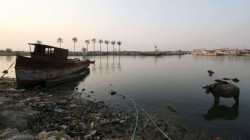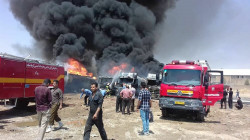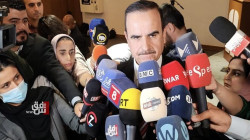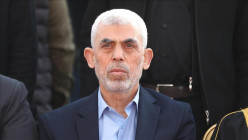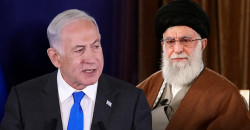Iran calls for an Islamic military alliance against Israel, navy chief says
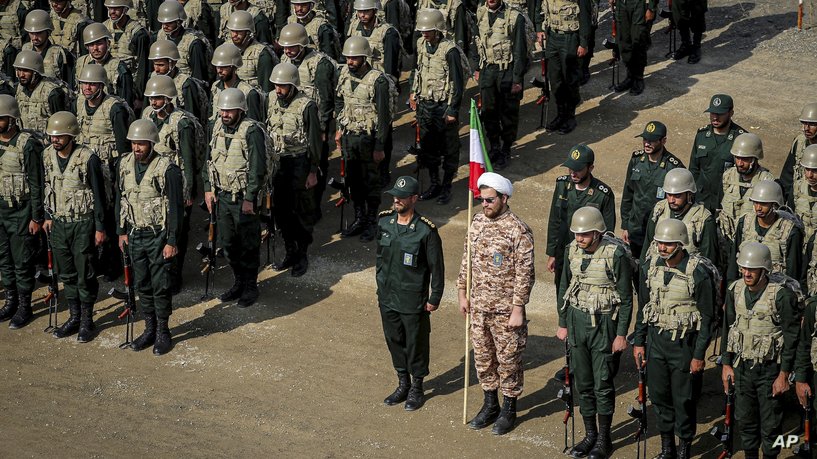
Shafaq News/ The chief of Iran's Islamic Revolutionary Guard Navy, Admiral Alireza Tangsiri, on Tuesday called for establishing of an alliance of Islamic military forces to counter Israel.
Tangsiri made those remarks in a televised interview, only a few days after Israel killed Iranian officers, including top commanders, in an airstrike on the Iranian consulate in Damascus.
"The Zionist entity's (referring to Israel) actions in Gaza demonstrate its failure," he said. "They did not achieve their goals of defeating Hamas or securing the release of prisoners."
Tangsiri reiterated his country's commitment to supporting its allies in Lebanon, Hezbollah, as well as the Houthi movement in Yemen.
He said that these groups have grown stronger in their resistance against Israel and regional adversaries.
"Yemen is an independent country. The Resistance there is an independent...They don't follow our commands," he said.
On the ongoing tensions with Israel in the Persian Gulf, he said that his country has "the capability" to close the Strait of Hormuz, a strategic waterway for global oil transportation, but assured it is committed "to regional security and keeping the strait open for commercial traffic."
Tangsiri asserted that Iran "will definitely" respond to the Israeli airstrike on the Iranian consulate in Damascus, but said the "suitable timing" for delivering the "strong blow" is up to the "relevant authorities" to decide.
The strike was part of a pattern of escalated Israeli attacks in Syria since the eruption of the Gaza war last October. These attacks have often targeted warehouses, trucks, and airports, and Israel's declared aim for them is degrading Iran's transnational supply network for the Lebanese group Hezbollah.
Monday's attack was different, however, in that it struck a diplomatic facility – directly challenging Iran’s sovereignty – and killed senior leaders in the Islamic Revolutionary Guard Corps.
The most high-profile casualty was Brigadier General Mohammad Reza Zahedi, a veteran commander who led the IRGC foreign operations wing, the Quds Force, in Syria and Lebanon.
Tehran has publicly committed itself to avenging the consulate attack. Khamenei has said Iran's "brave men" will punish Israel, one of his advisers has warned that Israeli embassies "are no longer safe", and two officials recently told the New York Times they will retaliate directly against Israel, to restore deterrence.
A major player in Middle East politics, Iran generally projects its power through a network of ideologically aligned allies and non-state groups – a network that styles itself the "Axis of Resistance".
These groups include the Houthis of Yemen, Hamas of Palestine, Hezbollah of Lebanon, and Shiite paramilitary groups like Kataib Hezbollah in Iraq, plus the government in Syria.
The actors fall on a spectrum ranging from hardcore loyalists, like Hezbollah in Iraq and Lebanon, to autonomous but often dependent partners and allies of Tehran, like Hamas, the Houthis, and the Damascus.
In 2020, however, Iran took the unusual step of responding to the US assassination of the Quds Force leader Qassem Soleimani – which was itself unprecedented – by staging a direct attack on US forces, launching a barrage of ballistic missiles at the Ain al-Assad base in Iraq. US soldiers at the base were injured but none were killed, in large part because they had received warning from the Iraqi government.
The region has been aflame since the start of the Gaza war, following the Hamas October 7 attack in Israel, which killed more nearly 1,100 Israelis, and the Israeli brutal response, which has killed more than 33,100 Palestinians thus far and pushed Gaza into famine conditions.
Since October, vicious tit-for-tat violence has raged along the Israel-Lebanon border, there has been a long string of attacks on US forces in Syria and Iraq, and Red Sea shipping has been disrupted by Houthi missile and drone strikes.
Even though Iran may be willing to tolerate the risk of an accidental regional war, it has repeatedly shown that it does not want direct conflict with Israel or the US and will try to keep violence below that threshold.
When Iran-backed groups killed three US soldiers in Jordan earlier this year, Washington retaliated with air attacks on Syria and Iraq.
Quds Force commander Esmail Qaani reportedly told pro-Iran factions in Iraq to stop targeting US troops afterwards. Since then, they have mostly been sending drones against Israel, with little effect.
